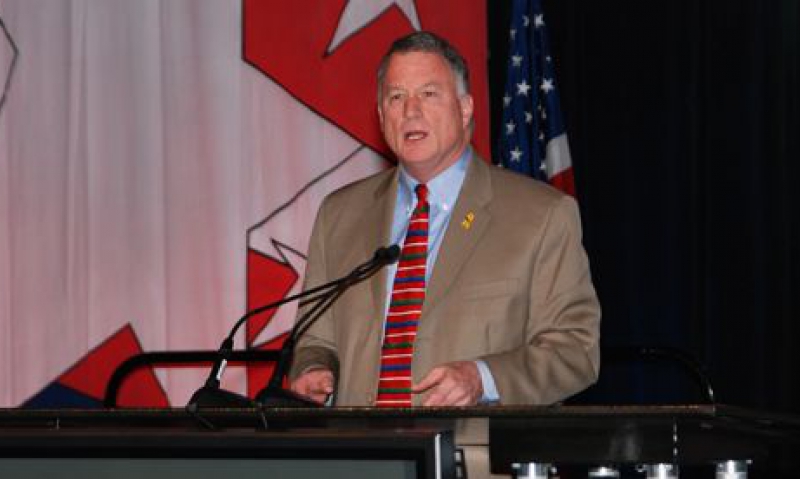
Veterans Health Administration's chief of staff asks participants at Road to Recovery to reach out to VA.
The Department of Veterans Affairs health-care system was set up for one reason, and the chief of staff for the health-care side of the agency wants veterans to take advantage of that reason.
Paul Hutter, chief of staff for the Veterans Health Administration, was one of the guest speakers during Wednesday’s general session of the Road to Recovery Conference and Tribute.
“VA is there, VHA is there, to make sure that we’re treating every veteran,” said Hutter, a retired U.S. Army colonel with 30 years in the Army and Army Reserves. “We want to reach out to you in as many ways as we can. We are privileged to serve our nation’s finest citizens.”
Hutter touched on one of the hot-button issues of the conference – post-traumatic stress – during his address. “The number of servicemembers suffering from PTSD has been estimated as high as 400,000, and suicide rates for the U.S. military have at least doubled in the last decade,” Hutter said. “Between 2002 and the third quarter of FY 10, a cumulative number of nearly 157,000 OEF-OIF veterans received a provisional diagnosis of PTSD in our VA medical centers and clinics. This represents 13 percent of OEF-OIF veterans who have left active duty and become eligible for VA health care since 2002.
“Every VA medical center has outpatient PTSD specialty capability, and every one of these programs has an addiction specialist associated with it to address the common issue that goes along with PTSD, and that’s substance-use disorder. Our PTSD programs provide a comprehensive continuum of care, from outpatient PTSD clinics, to specialized inpatient clinics, to pretreatment units and residential rehabilitation treatment programs. Dealing with PTSD is a central part of our mission.”
Hutter also said that mental health care is another high priority for VA. “People don’t want to come to us for (mental health) care because they don’t want to admit, with the fear of stigma, that they have a mental injury or a mental problem,” he said. “We’ve got to get over that, folks. We are trying, in conjunction with the armed services, to get over that. The Army is piloting a program right now as people transition back from Afghanistan and Iraq. Every soldier in a brigade will get mental health care, will get the opportunity to have a face-to-face contact with a mental health provider – either face to face or through Skype or through PTC.
But no matter what VA is doing, Hutter said veterans need to enroll in the system and seek help to take full advantage of the services available. “You’ve got to let us help you,” he said. “We’re going to reach out to you, but the bottom line is in order to get help, you’ve got to come to us and tell us what we can do. Ask, ask, ask, communicate and demand. Demand from your VA that they help you, and we will be there for you.”
The Road to Recovery is co-presented by The American Legion and the Coalition to Salute America’s Heroes.
- Veterans Benefits

